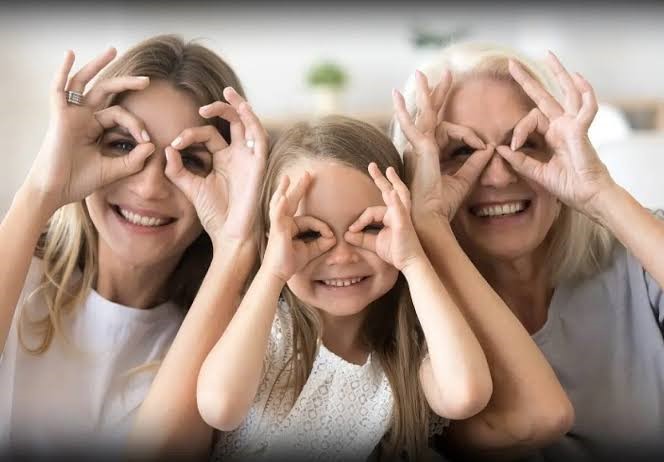WOMEN’S EYE HEALTH AND SAFETY AWARENESS
Vision impacts all aspects of life, women have a higher risk of eye health and vision problems that can affect their quality of life, such as glaucoma and age-related macular degeneration, than men.
Well, 91% of the women surveyed recently didn’t know that, which means that many of them aren’t taking the necessary precautions to prevent eye damage and vision loss.
One of the main reasons women have more vision problems than men is because they typically live longer. Women generally have a higher life expectancy than men, increasing their risk for age-related eye conditions.
Hormone fluctuations are another reason why women are more likely than men to develop vision issues.
Women are more susceptible to develop chronic dry eye, partially because it is often associated with other health issues that are more common in women such as ocular rosacea which is three times more prevalent in women. Hormonal changes during pregnancy and menopause can also contribute to dry eye.
Pregnancy – Fluid retention caused by hormone changes can lead to blurry vision during pregnancy. This and other pregnancy-related vision changes usually disappear after a woman gives birth.
Menopause – Women also experience significant hormonal changes during menopause. Dry eye is common among peri- and postmenopausal women.
Gender and financial disparities can hinder a woman’s access to eye care.
Common eye conditions affecting women:
Most eye health problems and vision issues affect both men and women equally. However, women are at a higher risk for developing some eye issues.
According to a recent study, the statistics for many of the major vision problems show that women have a higher percentage of incidence than men. These include:
Age-related Macular Degeneration 65%
Cataracts 61%
Glaucoma 61%
Refractive Error 56%
Other Vision Impairments 63%
Eye health tips for women
Making your eye health a priority is the best way to protect your vision. Here are some habits that can help maintain your eye health and lower your risk of eye disease:
Get routine comprehensive eye exams – Women ages 18 to 64 should have an eye exam at least every two years. If you’re 65 and older, you should have an eye exam annually. Your eye doctor will tell you if there’s need to be seen more often.
Eat a healthy diet – Eat foods that are good for eye health, such as fish, lean meats, whole grains, brightly colored fruits and dark leafy greens.
Stay active – Exercise is a good way to keep your eyes healthy because it reduces your risk of diabetes and other health problems that can affect vision.
Wear sunglasses – The sun emits ultraviolet (UV) rays that can damage your eyes even on cloudy days so wear sunglasses whenever you’re outside. Make sure your sunglasses block 99% to 100% of UVA and UVB rays.
Use protective eyewear when needed – Protective eyewear like safety glasses and goggles can help keep your eyes safe from potential dangers. They’re good to wear when you play sports or work with hazardous materials, among other situations.
Quit smoking – Smoking can damage your eyes and raise your risk for eye health problems such as age-related macular degeneration and cataracts.
Find out about family history of eye diseases and conditions.
Adhere to contact lens hygiene and safety.
Adhere to cosmetic hygiene and safety precautions.
Protect your eyes against extended exposure to blue light from computers, smartphones and LED lamps.
Women often juggle many responsibilities, including work and caretaking, along with many other activities. Getting regular eye exams can help ensure your eyes are healthy and that you can see clearly. The investment in your health can pay off today and in the future.
If you are pregnant or planning to become pregnant and have diabetes, see an eye doctor for a comprehensive eye exam. In women who have diabetes, diabetic retinopathy can accelerate quickly during pregnancy and can present a risk for the baby as well.
Mothers are often charged with caring for the eye health of the entire family, but too often their own eye health needs fall to the wayside. It is critical that mothers take care of their eyes and overall health so that they can be in the best condition to care for their families.
WHY WOMEN’S EYE HEALTH AND SAFETY AWARENESS IS IMPORTANT?
It creates eye health awareness: It educates women about their eye health and encourages them to be proactive about it. Most women don’t know that they are more prone to eye diseases than men.
It encourages an eye checkup: During a month dedicated to women’s eye health, we have no excuse but to visit the doctor for an eye checkup. Doing so also encourages more women to do the same.
It’s another reason to respect women: The fact that women are more prone to eye disease calls for us to pause and take extra precautions. It also encourages males to realize the challenges that women face and in turn appreciate them more.



